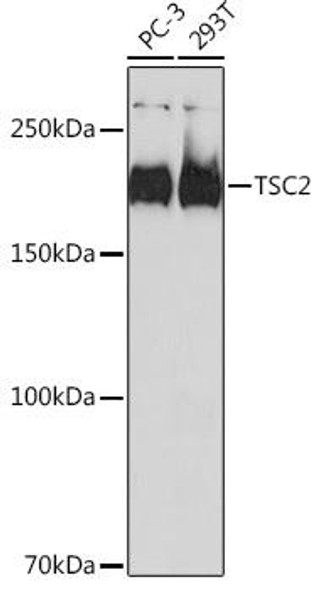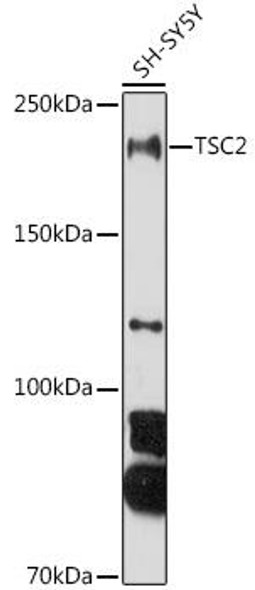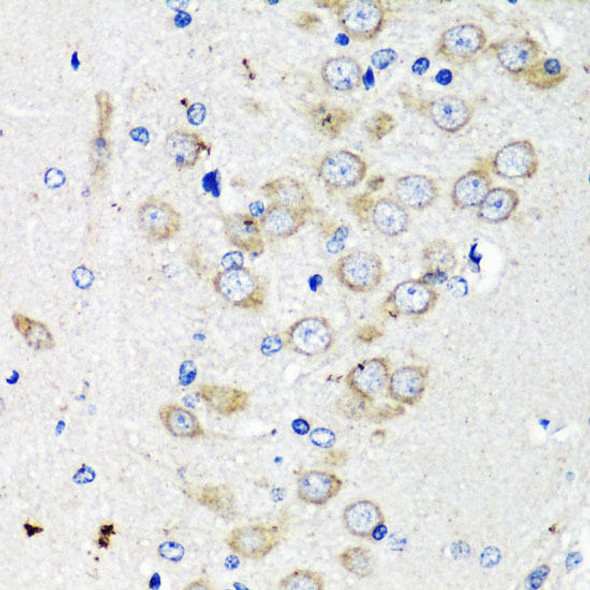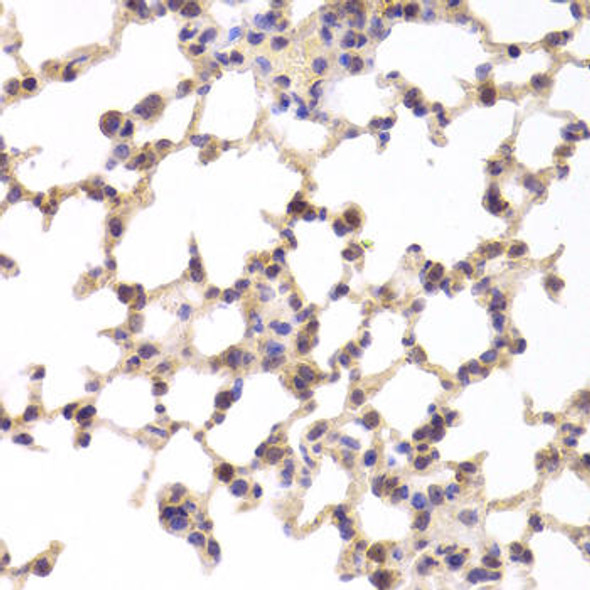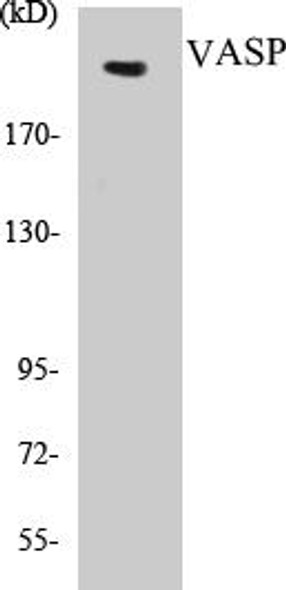TSC2 Antibody (PACO20790)
- SKU:
- PACO20790
- Product Type:
- Antibody
- Reactivity:
- Human
- Mouse
- Rat
- Host Species:
- Rabbit
- Isotype:
- IgG
- Applications:
- ELISA
- IHC
- Antibody Type:
- Polyclonal Antibody
- Conjugation:
- Unconjugated
Description
TSC2 Antibody (PACO20790)
The TSC2 Polyclonal Antibody (PACO20790) is a valuable tool for researchers studying TSC2, a tumor suppressor protein associated with Tuberous Sclerosis Complex (TSC). This antibody, raised in rabbits, is highly specific to human samples and is validated for use in Western blot applications. By binding to the TSC2 protein, this antibody allows for precise detection and analysis in various cell types, making it an essential component of studies in cancer biology and genetic disorders.
TSC2 is a key player in the regulation of cell growth and metabolism, with mutations in the TSC2 gene leading to the development of TSC and other related conditions. By targeting TSC2, researchers can gain valuable insights into the mechanisms underlying these diseases and potentially identify new therapeutic targets. The TSC2 Polyclonal Antibody is a powerful tool for investigating the role of TSC2 in cellular pathways and exploring its potential as a target for novel treatments.
| Antibody Name: | TSC2 Antibody (PACO20790) |
| Antibody SKU: | PACO20790 |
| Size: | 50ul |
| Host Species: | Rabbit |
| Tested Applications: | ELISA, IHC |
| Recommended Dilutions: | ELISA:1:2000-1:5000, IHC:1:25-1:100 |
| Species Reactivity: | Human, Mouse, Rat |
| Immunogen: | Synthetic peptide of human TSC2 |
| Form: | Liquid |
| Storage Buffer: | -20°C, pH7.4 PBS, 0.05% NaN3, 40% Glycerol |
| Purification Method: | Antigen affinity purification |
| Clonality: | Polyclonal |
| Isotype: | IgG |
| Conjugate: | Non-conjugated |
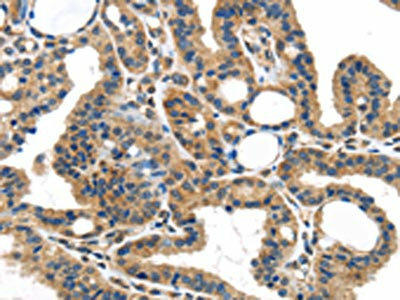 | The image on the left is immunohistochemistry of paraffin-embedded Human thyroid cancer tissue using PACO20790(TSC2 Antibody) at dilution 1/35, on the right is treated with synthetic peptide. (Original magnification: x200). |
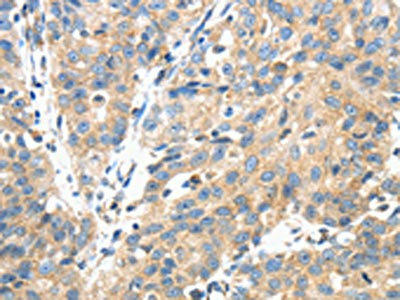 | The image on the left is immunohistochemistry of paraffin-embedded Human breast cancer tissue using PACO20790(TSC2 Antibody) at dilution 1/35, on the right is treated with synthetic peptide. (Original magnification: x200). |
| Background: | Mutations in this gene lead to tuberous sclerosis complex. Its gene product is believed to be a tumor suppressor and is able to stimulate specific GTPases. The protein associates with hamartin in a cytosolic complex, possibly acting as a chaperone for hamartin. Alternative splicing results in multiple transcript variants encoding different isoforms. |
| Synonyms: | tuberous sclerosis 2 |
| UniProt Protein Function: | TSC2: a product of the tumor suppressor gene TSC2. Tuberin and Hamartin (TSC1) form a tumor suppressor heterodimer that inhibits the mTOR nutrient signaling input. TSC1/TSC2 targets the small G protein Rheb, a novel mediator of the nutrient signaling input to mTOR. Functions as a Rheb GTPase activating protein (GAP). Four alternatively spliced isoforms have been described. |
| UniProt Protein Details: | Protein type:Cell cycle regulation; GAP; GAP, misc.; Nuclear receptor co-regulator; Tumor suppressor Chromosomal Location of Human Ortholog: 16p13.3 Cellular Component: cytoplasm; cytosol; Golgi apparatus; lysosome; membrane; nucleus; perinuclear region of cytoplasm; TSC1-TSC2 complex Molecular Function:GTPase activator activity; phosphatase binding; protein binding; protein homodimerization activity; small GTPase binding Biological Process: anoikis; cell cycle arrest; endocytosis; heart development; insulin-like growth factor receptor signaling pathway; negative regulation of cell proliferation; negative regulation of insulin receptor signaling pathway; negative regulation of phosphoinositide 3-kinase cascade; negative regulation of protein kinase activity; negative regulation of protein kinase B signaling cascade; negative regulation of TOR signaling pathway; negative regulation of Wnt receptor signaling pathway; neural tube closure; positive chemotaxis; positive regulation of macroautophagy; protein import into nucleus; protein kinase B signaling cascade; protein localization; regulation of cell cycle; regulation of endocytosis; regulation of insulin receptor signaling pathway; vesicle-mediated transport Disease: Focal Cortical Dysplasia Of Taylor; Lymphangioleiomyomatosis; Tuberous Sclerosis 2 |
| NCBI Summary: | Mutations in this gene lead to tuberous sclerosis complex. Its gene product is believed to be a tumor suppressor and is able to stimulate specific GTPases. The protein associates with hamartin in a cytosolic complex, possibly acting as a chaperone for hamartin. Alternative splicing results in multiple transcript variants encoding different isoforms. [provided by RefSeq, Jul 2008] |
| UniProt Code: | P49815 |
| NCBI GenInfo Identifier: | 269849475 |
| NCBI Gene ID: | 7249 |
| NCBI Accession: | P49815.2 |
| UniProt Secondary Accession: | P49815,O75275, Q4LE71, Q8TAZ1, A7E2E2, B4DIL8, B4DIQ7 B4DRN2, B7Z2B8, C9J378, |
| UniProt Related Accession: | P49815 |
| Molecular Weight: | 25,773 Da |
| NCBI Full Name: | Tuberin |
| NCBI Synonym Full Names: | tuberous sclerosis 2 |
| NCBI Official Symbol: | TSC2 |
| NCBI Official Synonym Symbols: | LAM; TSC4; PPP1R160 |
| NCBI Protein Information: | tuberin |
| UniProt Protein Name: | Tuberin |
| UniProt Synonym Protein Names: | Tuberous sclerosis 2 protein |
| Protein Family: | Tuberin |
| UniProt Gene Name: | TSC2 |
| Secondary Antibody |
| Anti-HRP Goat Anti-Rabbit IgG (H+L) Antibody (CABS014) |
| Recommended Products |
| Anti-FITC Goat Anti-Rabbit IgG (H+L) Antibody (CABS011) |
| Anti-HRP-conjugated Beta Actin Antibody (CABC028) |







